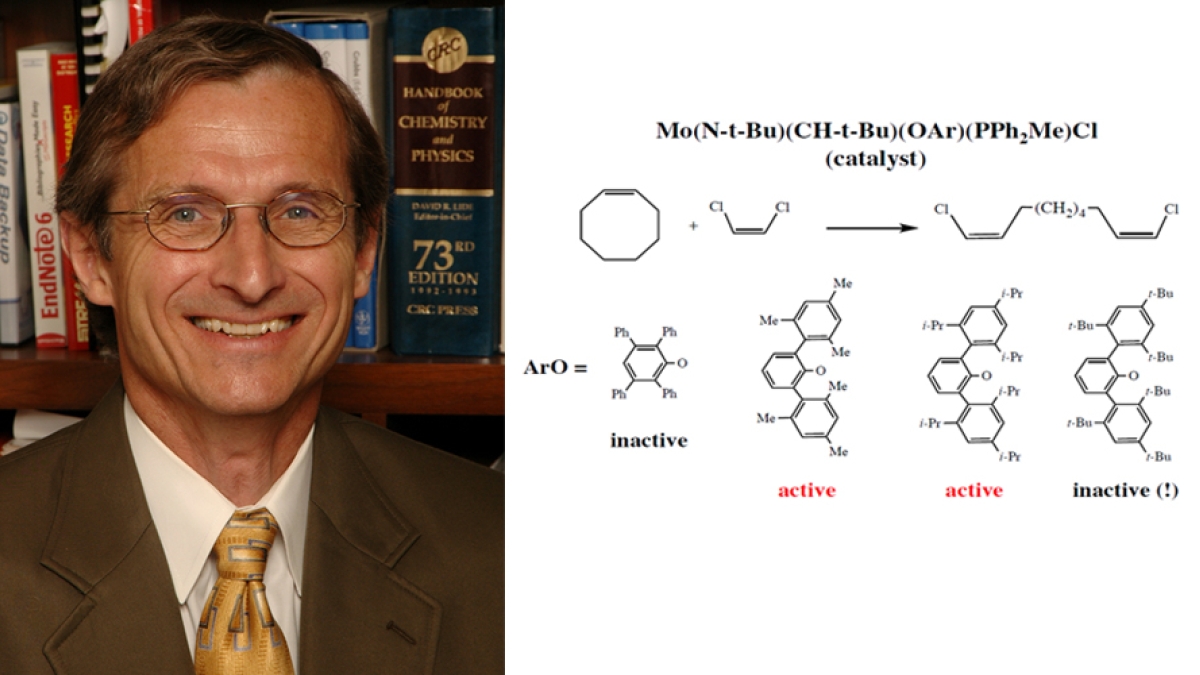Nobel laureate Richard R. Schrock to deliver Eyring lecture at ASU

Richard R. Schrock, Nobel Laureate in Chemistry 2005
F. G. Keyes Professor of Chemistry at M.I.T. Richard R. Schrock, a Nobel laureate with many internationally contested awards, will be the featured Eyring Lecture Series speaker, Oct. 19 and 20, on Arizona State University's Tempe campus.
Schrock who, with Robert Grubbs and Yves Chauvin, was awarded the Nobel Prize for Chemistry in 2005 for developing metathesis, one of the most important types of chemical reactions used in inorganic and organic chemistry. Schrock was honored as “the first to produce an efficient metal-compound catalyst for metathesis.”
The general lecture on Oct. 19 titled “A Discovery and a Nobel Prize 30 Years Later” will be presented at 6:30 p.m. in the Bateman Physical Sciences building (PSH150). It will be livestreamed at https://asunow.asu.edu/asulive and more information can be found here.
The Eyring lectures are part of an interdisciplinary distinguished lecture series dedicated to stimulating discussion by renowned scientists who are at the cutting edge of their respective fields. Each series consists of a lead-off presentation to help communicate the excitement and the challenge of science to the university and community. Past lecturers have included Nobel laureates Ahmed Zewail, Jean-Marie Lehn, Harry Gray, Richard Smalley and Yuan T. Lee.
The technical lecture, "Recent Advances in Olefin Metathesis by Molybdenum and Tungsten Catalysts," will take place at 3:40 p.m. Oct. 20, in the Physical Sciences H-wing lecture hall H-151 on the Tempe campus.
The lecture series is named in honor of the late Leroy Eyring, an ASU Regents’ Professor of chemistry and former department chair, whose instructional and research accomplishments and professional leadership at ASU helped to bring the Department of Chemistry and Biochemistry into international prominence. The Leroy Eyring Center for Solid State Science at ASU is named in his honor.
More Science and technology

ASU student researchers get early, hands-on experience in engineering research
Using computer science to aid endangered species reintroduction, enhance software engineering education and improve semiconductor…

ASU professor honored with prestigious award for being a cybersecurity trailblazer
At first, he thought it was a drill.On Sept. 11, 2001, Gail-Joon Ahn sat in a conference room in Fort Meade, Maryland.…

Training stellar students to secure semiconductors
In the wetlands of King’s Bay, Georgia, the sail of a nuclear-powered Trident II Submarine laden with sophisticated computer…